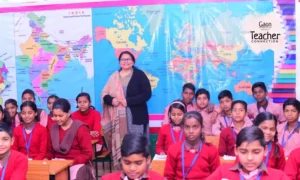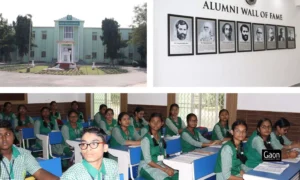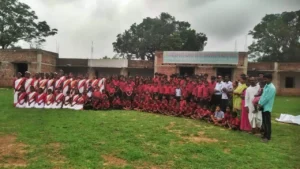Kanoi (Jaisalmer), Rajasthan
An oval-shaped building in the Thar desert, in a village called Kanoi, 37 kilometres away from Jaisalmer city in Rajasthan, is garnering a lot of attention from tourists. Because it is where 140 girls from the neighbouring villages with low literacy are provided education.
But that is not the only thing special about Rajkumari Ratnavati Girls High School.
The school building is designed in such a way that it is said to withstand temperatures up to 50 degrees Celsius. It has been built using locally available building materials by involving the local masons and carpenters.
Despite the hot weather of the desert, the school interiors remain cool and girls can be seen singing, dancing and running around the ‘green’ school premises. They come from families where their parents are farmers, camel herders, goat herders and casual labourers.
The Rajkumari Ratnavati Girls High School was conceptualised by Michael Daube, founder of an American non-profit CITTA, that provides women and girls from marginalised communities education and means of economic independence.
The school was designed by American architect, Diana Kellog, and began functioning in July 2021. CITTA also funds the running of the school which is absolutely free for the students who are also given free books, uniform and transport, besides food.
The architects of the school have taken special care to ensure the school building is built with sandstone that is locally available.
Also Read: Kheep Cool in the Desert
“The walls of the school had to withstand considerable heat and keep the interiors cool. That is the reason we used the local sandstone and then lime to plaster the walls. These are traditional methods that have been used in this area for hundreds of years. Both these keep the inside of the building cool,” Riya Bissa, an assistant architect in the project told Gaon Connection.
Local artisans and local materials were used to minimise the carbon footprint, she added. “We kept the geographic, cultural and traditional aspects of Jaisalmer while we built the school,” she added.
Solar panels generate the required power supply and an efficient rainwater harvesting system has been put in place that collects runoff from the roof and leads it into a tank through pipes.
Outside each classroom are planted saplings of the local flora, and they are etched on the sandstone walls as well. Everything has been built by local carpenters and artisans, Birsa pointed out.
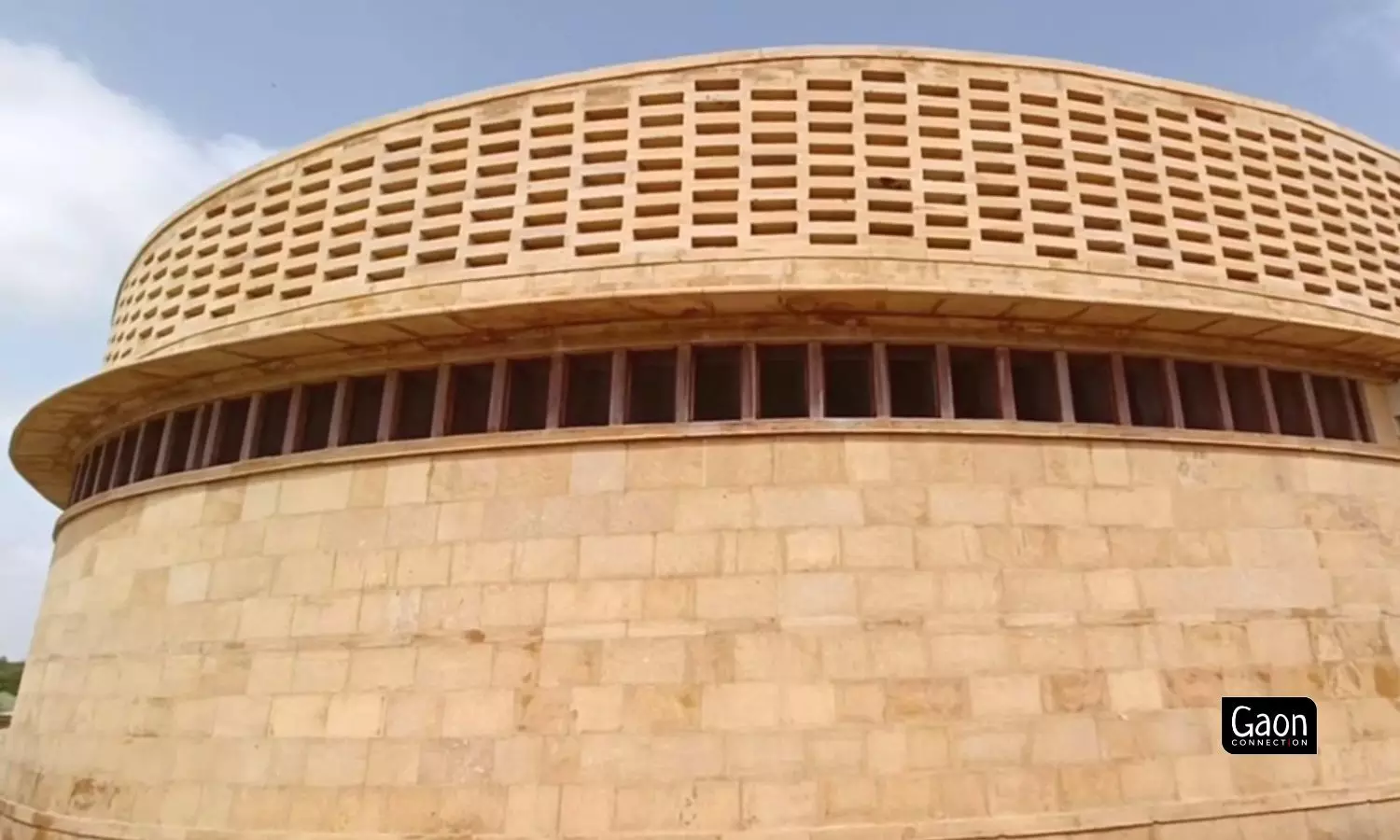
The Rajkumari Ratnavati Girls High School was conceptualised by Michael Daube, founder of an American non-profit CITTA.
The school is meant for only girl students who come from villages such as Sam, Salkha, Bhilon ki Basti, Meghwalon ki Basti, in Jaisalmer district. “A school bus picks them up and brings them to school by 7.30 am and they return home at 1. 30 pm. They get lunch at school,” said Gyanendra Mishra, the academic manager of the school.
Also Read: A teacher has trained over 30,000 girls in self-defence
“In a desert area like this the literacy of women is abysmal. I am excited to be a part of an initiative to raise their education levels and make them count for something,” Kowsiki, a 31-year-old teacher from Delhi who teaches English to students of classes one to five, told Gaon Connection.
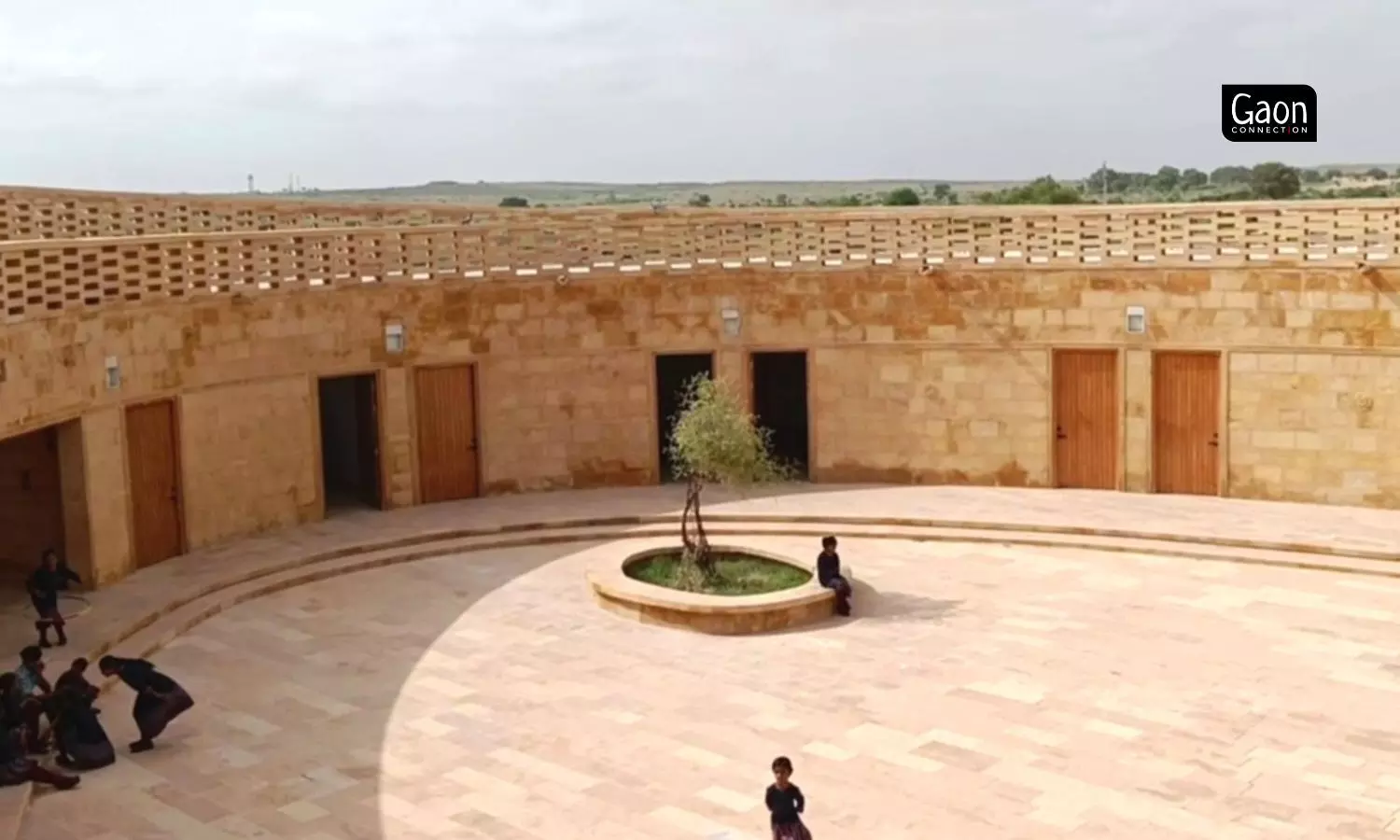
Despite the hot weather of the desert, the school interiors remain cool and girls can be seen singing, dancing and running around the ‘green’ school premises.
While the school can hold 400 students, on account of it still being a primary school the number of students is limited to 140, said Mishra. There are six teachers at the moment, four of whom are women. There is also a supervisor besides the academic manager who administers the school.
Misra, the academic manager of the school, also informed that the uniform of the students has been designed by the famous designer Sabyasachi Mukherjee, and for free. The uniform consists of a round necked and three quarter sleeved top that is worn with maroon slacks.
The girls find the uniform very comfortable to move around in and a matter of pride. “Our uniform has been designed by a big designer Sabyasachi Mukherjee,” Vasundhara, a 11-year-old, told Gaon Connection excitedly as she ran to join her friends who were busy practising dance on the famous Bollywood song ‘Des Rangila’.








